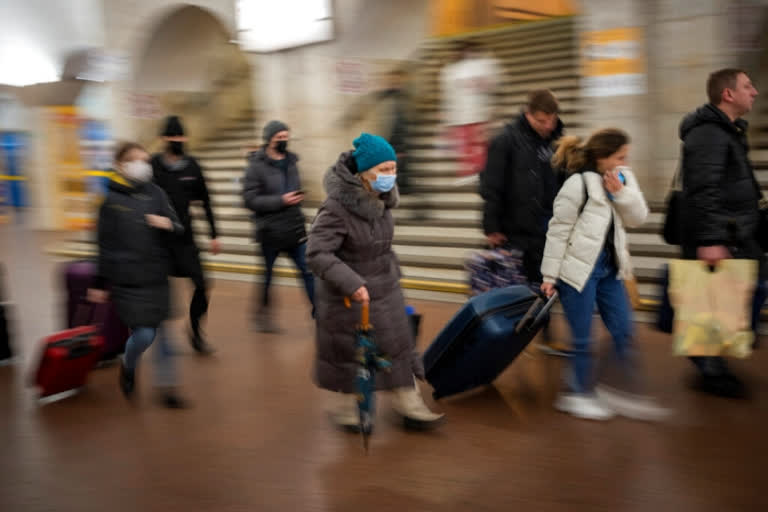Kyiv: Although Ukrainians had been warned for weeks that war with Russia was imminent, when the attacks finally came Thursday many seemed not to know how to react.
Civil defense sirens wailed in the air of the capital, Kyiv, in the gray and drizzly morning, but the city's main street Khreshchatyk was a mixture of anxiety and normalcy.
The hotel where many journalists stayed ordered an evacuation within 30 minutes. Upon checkout, the friendly desk clerk asked: "Did you have anything from the mini-bar?"
Outside, guests hurriedly loaded their hastily packed luggage into cars, while passersby walked dogs and occasionally waved at acquaintances.
Some had been awakened by the sound of explosions on the city's fringes, but others heard nothing. The mayor of Boryspil, the suburb where the capital's main airport lies, said some of the explosions were due to the shooting down of drones of unidentified origin.
"I'm not scared at the moment, maybe I'll be scared later," said Maxim Prudskoi, a resident standing on Khreshchatyk.
In Mariupol, the Azov Sea port city that many fear will be the first major target because of its strategic importance and valuable heavy industry, AP journalists saw similar scenes of aplomb and fear.
People waited at bus stops, seemingly on their way to work, while others hastened to their cars to leave the city that is only about 15 kilometers (less than 10 miles) from the front line with the Donetsk People's Republic, one of two separatist-held areas recognized by Russian President Vladimir Putin as independent this week in a prelude to the invasion.
